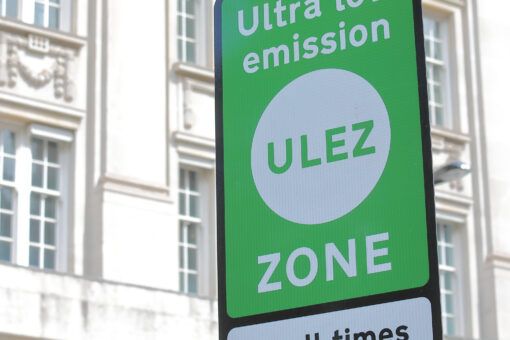
The Chief Medical Officer’s annual report 2022, provides extensive evidence of how air pollution damages health, killing many. The biggest harm is to lungs, but almost every part of the body can be harmed by air pollution. Slowed development in children and dementia have both been associated with air pollution.
The UKHSA 2019 evidence-based review on interventions to reduce harm from air pollution describes low emission zones as promising interventions; and a scientific review by UKHSA and Public Health Wales highlights the need to reduce transport-related air pollution.
In the four years since the ULEZ was first introduced, emissions of fine particulate matter (PM2.5) are estimated to have reduced by 19% within the ULEZ; nitrogen dioxide (NO2) concentrations are 21% lower in inner London, and 46% lower in central London, than they would have been without the ULEZ. These falls in pollution will have produced benefits to health, including fewer children being admitted to hospital with asthma. More than half of the 500,000 Londoners with asthma live in outer London, and the expansion of the ULEZ will bring cleaner air to them, and all those who live there.
Air pollution harms most the young, the elderly, and the deprived, meaning that actions that reduce air pollution will reduce health inequalities. Although 90% of vehicles in outer London comply with ULEZ and will not have to pay, we recognise that the deprived are likely to be most affected by the expansion because they have older vehicles. We support the scrappage scheme already in place and would like to see increased funding, benefiting both those who can replace older vehicles and those currently harmed by air pollution.
In May this year, we wrote to the Secretary of State for Health and Social Care calling on him to support the ULEZ expansion as an important intervention to improve the health of Londoners and all who breathe our capital city’s air. We also expressed our disappointment about statements from some government ministers in regards to the ULEZ expansion, particularly when the Government is clear of the need to act on the serious effect of air pollution on health.
We received a response to our letter in August. In their response, the Department of Health and Social Care emphasised that poor air quality is the largest environmental risk to public health in the UK, and highlighted the UK Health Security Agency’s Cleaner Air Programme, which aims to reduce exposure to air pollution and achieve better outcomes for all – particularly for the most vulnerable groups including those with pre-existing respiratory and cardiovascular conditions.
While the Government’s response to our letter fell short of supporting the ULEZ expansion, it highlighted the serious harm to health from pollution and the need for interventions to reduce air pollution.
The Ultra Low Emission Zone reduces air pollution and provides a framework, evidence and inspiration for other cities to follow. That’s why the UK Health Alliance on Climate Change, whose members’ members include over a million health professionals, supports the expansion of ULEZ and calls on the other cities to follow the lead of London.
Our letter to the Secretary of State can be viewed here.
The response from the Department of Health and Social Care can be read here.
